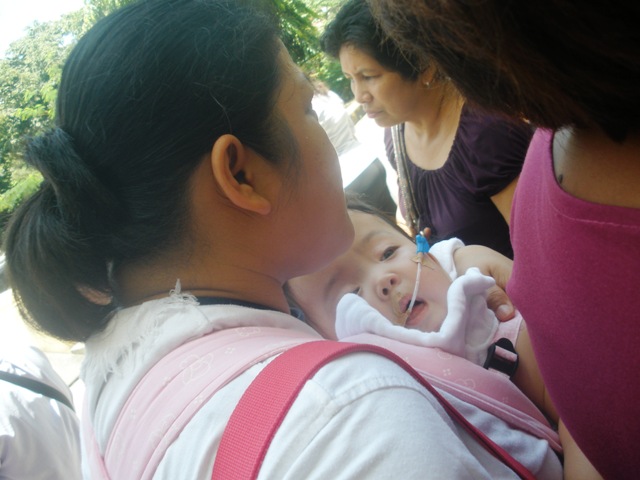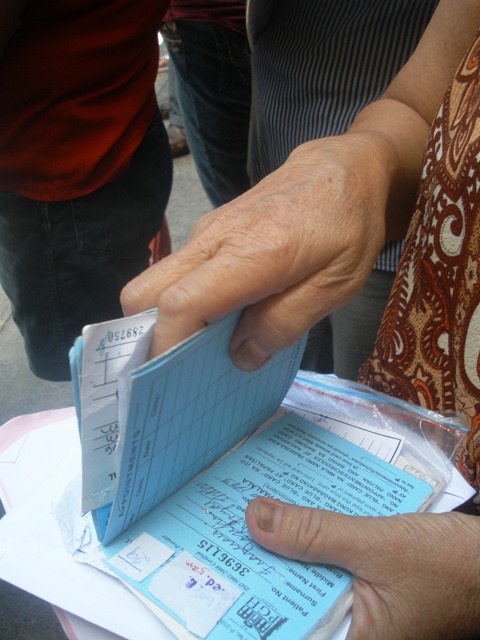Kaninang umaga, Setyembre 29, 2011, hinirang ng UP Board of Regents ang mga chancellor ng UP Los Banos, UP Manila at UP Visayas.
Bagong Chancellor ng UP Los Banos –Dr. Rex Victor Cruz, kasalukuyang Dekano ng College of Forestry and Natural Resources UP Los Banos (http://up.edu.ph/pdf/UPLB%20vision%20papers/RexCruz_Plans_Vision-FINAL%20version.pdf)
Bagong Chancellor ng UP Manila-- Dr. Manuel Agulto, ophthalmologist at director ng Institute of Ophthalmology (http://upm.edu.ph/upmsite/news/news_agulto.html)
Bagong Chancellor ng UP Visayas---Dr. Rommel Espinosa, kasalukuyang Dekano ng College of Arts and Sciences, UPV Iloilo-Miag-ao. (http://www.upv.edu.ph/files/re_vision.pdf, http://www.upv.edu.ph/files/re_cv.pdf)
Ang mga ito, na siya ring inendorso ni Pangulong Pascual, ang magiging kabalikat ng kanyang administrasyon sa pagpapatupad ng kanyang programa sa nalalabing limang taon at limang buwan ng panunungkulan.
Sa tatlong ito, ang napiling Chancellor ng UP Visayas lamang ang may malawak na suporta ng mga estudyante, kawani, REPS at faculty dahil siya ay nagtataguyod ng demokratikong pamamahala sa UP at nagtitiyak na ang galing at dangal ng UP ay iaalay sa sambayanan. Masaya ang mga kasama sa UP Visayas!
Pinaghalong tuwa at lungkot naman ang namamayani sa mga estudyante ng UPLB na pumunta sa Quezon Hall para manawagan ng isang pro-people, pro-student Chancellor. Tuwa, dahil hindi ang kasalukuyang OSA Director, na isa sa mga nominado, ang napili. Lungkot, dahil si Cruz ay bahagi ng administrasyon ni UPLB Chancellor Velasco. Maraming isyu hinggil sa demokratikong pamamahala ang hindi tinugunan, kabilang na ang paliwanag sa gastusin kaugnay ng mga maraming banga na naglilipana sa LB, ang pamamahagi sa mga dekano ng Mac computers at sa mga Vice-Chancellor ng IPads ngayong magtatapos na ang administrasyong Velasco.
Lungkot din ang naramdaman ng mga kinatawan ng estudyante, faculty, REPS at kawani ng UP Manila sa pagkakahirang kay Agulto na walang malinaw na rekord sa pagtindig sa mga usapin ng demokratikong pamamahala sa unibersidad at sa community health medicine.
Malaki ang hamong hinaharap ng mga organisasyong kabilang sa UP Kilos Na sa LB, Manila at Visayas sa pagkakaroon ng bagong administrasyon sa tatlong CUs.
Ang unang hamon ay ang muling pagpapaalaala sa mga bagong hirang na Chancellor sa kanilang mga pangako sa kanilang vision papers. Ang mga sumusunod ay ilang piling halaw mula sa kanilang vision papers:
Cruz (UP LB)
- Set in place mechanisms for regular meeting with the UPLB Executive and Management Committee (at least monthly) to discuss and identify existing as well as emerging problems and provide prompt solutions on issues affecting the administration and operation of UPLB.
- Democratize governance by allowing student representation in the UPLB ExeCom and other related committees and conducting regular consultation, dialogues and forum with students
- Promote transparency in university transactions and democratized formulation of university policies affecting university students, administrative staff, REPS and faculty
- Center for caring, competent, and world class health care and social services that serves all sectors of society, but especially the underserved
- Democratic, participative and transparent governance
- Enhance faculty, staff and student welfare: innovative ways of increasing compensation, inservice training/educational benefits, and health insurance and other benefits
- Continue socio-cultural and health services to the underprivileged, while aiming for technological advancement and modernization of infrastructure and services to everybody
- The students through their councils and organizations should make their voices heard in a comprehensive search process for the next director of the Office of Student Affairs. The OSA Director should approachable, accessible to the students and receptive to their many concerns and problems.
- The faculty and staff unions within the university will be recognized as partners in good governance. Feedback from the unions will be actively solicited regarding the selection and evaluation of personnel to head the offices in middle management. The current set-up will be maintained, wherein there is union representation within policy-recommending bodies like the UPV AdPFC, the UPV AcPFC and the college-level AdPC’s. This will ensure transparency in decision-making and an incentive system based on merit.
Ang ikatlong hamon ay ang pagtitiyak ng partisipasyon ng mga kinauukulang sektor sa pamimili ng mga ilalagay sa mga posisyon bilang Vice Chancellors at Directors ng mahahalagang opisina. Nagawa ito sa UP Diliman. Kayang gawin din ito sa iba pang CUs. Sa ngayon pa lamang, may nagpapaabot na ng malaking agam-agam na” it will be business as usual” sa UPLB; na ang mga dating nakapuwesto sa panahon ni Velasco ay iyon pa rin ang mananatili sa administrasyon ni Cruz.
Ang ikaapat na hamon ay ang pagtitiyak ng accountability ni Pangulong Pascual sa magiging takbo at pamamalakad ng mga Chancellor na pangunahin niyang napili para maging katuwang niya sa pagpapatakbo ng unibersidad. Umaasa ang UP Kilos Na na patuloy na tanganan ni Pangulong Pascual ang pangako niyang demokratikong pamamalakad ng UP bilang modelo sa bayan na kanyang pinaglilingkuran:
"A great university is a model for good governance to the country it serves. TheU.P. leadership must observe the principles of democratic governance based on collegiality, representation, transparency, predictability, and accountability. The practice of good governance should be an ongoing commitment. When contemplating significant policy changes which have wide and far-reaching effects, the U.P. leadership should go through a process of consultation to explain proposed changes thoroughly and obtain feedback. This process may stretch out decision making; however, it will likely hasten implementation. In the management of funds and other resources entrusted to the University,responsible stewardship and ethical conduct should additionally characterize good governance." (http://www.up.edu.ph/pdf/nominees/AEPascual_Vision_Paper.pdf)
Sa panig ng UP Kilos Na --- ang malawak na pagkakaisa ng mga estudyante, guro, kawani at REPS ng UP na nanindigan sa isang demokratikong pamantasang naglilingkod sa sambayanan --- muli naming ipinapangako ang patuloy na pagtindig para sa kagalingan at kapakanan ng nakararaming constituents ng UP. Muli naming idinidiin na ang pang-akademikong kagalingan ay hindi hiwalay sa demokratikong pamamahala at paglilingkod sa bayan. Sa huling pagsusuri, nasa militante at determinadong pagkilos at mahigpit na pagkakaisa natin nakasalalay ang hangad nating UP na naglilingkod sa sambayanan!
Tuloy ang laban!
Igiit ang demokratikong pamamahala sa Unibersidad ng Pilipinas!
UP ang galing mo, ialay sa bayan!









